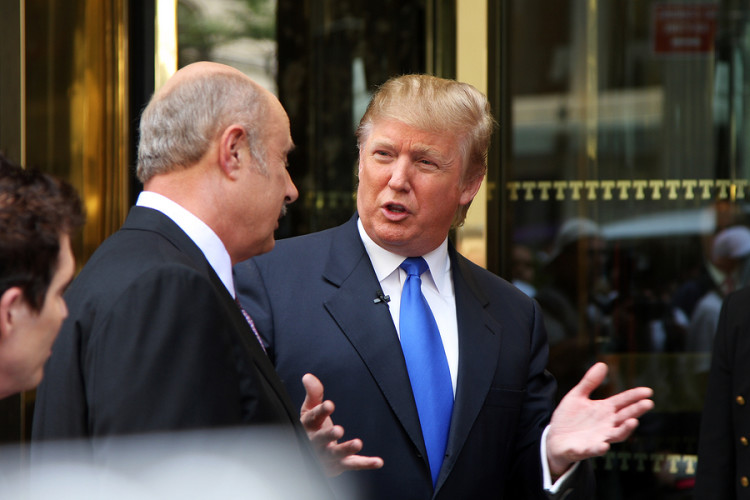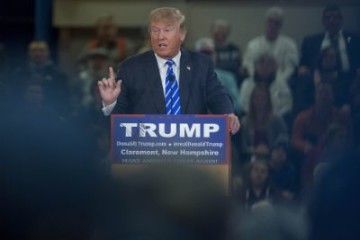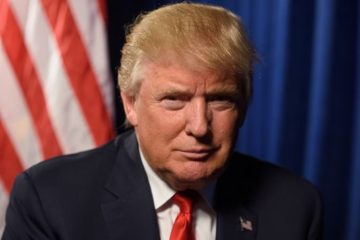Trump’s Second Travel Ban Is Blocked by U.S. Judge in Hawaii

published Mar 15th 2017, 7:45 pm, by Kartikay Mehrotra and Erik Larson
(Bloomberg) —
A Hawaii federal judge halted President Donald Trump’s revised travel ban, slamming it for discriminating against Muslims and handing the administration another setback on a core campaign issue.
The decision by U.S. District Judge Derrick Watson blocks a 90-day ban on new visa approvals for people from six Muslim-majority nations. States and advocacy groups were joined by technology companies and universities in challenging the executive order that they said damaged the economy and was at odds with the nation’s founding principles.
The White House spent weeks crafting and carefully rolling out its March 6 order after other judges had swiftly rejected the first travel ban, which Trump announced with great fanfare days after taking office and which immediately spurred chaos at airports across the country. The decision to halt the policy before it could take effect Thursday will almost certainly be appealed — to the same San Francisco circuit court that rejected the previous ban — and then possibly to the U.S. Supreme Court.
Once again, a judge cited Trump’s remarks on the campaign trail as an indication of his intent to keep Muslims out of the country. Watson pointed to the president’s plainly worded statements before the election, saying they “betray the executive order’s stated secular purpose,” which was “temporarily suspending the entry of Muslims.”
“This ruling makes us look weak, which by the way we no longer are,” Trump told a rally in Tennessee, vowing to take the case all the way to the Supreme court. ‘We’re going to fight this terrible ruling.”
The administration argued that the new order had none of the problems that torpedoed the first order. That one, which caught many in Trump’s own administration by surprise, hadn’t been vetted by lawyers and homeland security officials, and was so broad it ensnared green card holders and others who had long been in the country legally.
Broad Powers
In its appeal, which could come quickly, the administration will argue that the president has broad power over immigration and that the new order focused on people who aren’t yet in the country. Administration lawyers have also noted that the new order eliminated all preferences for religious minorities.
The Honolulu judge is one of three across the U.S. who spent Wednesday weighing whether to impose a temporary halt on the president’s second travel ban, which was tailored by administration lawyers to stand up to the legal challenges that imperiled its predecessor. Revisions to the order weren’t enough to convince him that the ban was free of religious discrimination.
Democratic state attorneys general and immigrant-rights groups have led the charge to block Trump’s renewed push to make good on his campaign promise to curb immigration in the name of protecting Americans from potential terrorist attacks. Supporters of Trump’s order contended that critics failed to understand the discretion that Congress affords the president in dealing with matters of immigration and national security. The new order temporarily would have blocked visa approvals for immigrants and refugees from Iran, Syria, Yemen, Libya, Somalia and Sudan.
Maryland, Seattle
A federal judge in Maryland deciding whether to block the travel ban and one in Seattle considering two such requests said after court hearings that they would issue written orders later.
“Great news,” Washington Attorney General Bob Ferguson said when he learned of the Hawaii ruling. Ferguson’s office stymied Trump’s earlier Jan. 27 ban in court and is challenging the revised ban in one of the two Seattle cases with the backing of California, New York and other states.
Lawyers in all four cases made the same fundamental argument: Trump as a presidential candidate and his surrogates during the past 18 months were explicit in saying they wanted to bar Muslim immigrants and require those already in the U.S. to register with the authorities.
U.S. Justice Department lawyers argued in all three courtrooms Wednesday that the president’s March 6 revised order eliminated any concern the policy could unfairly harm permanent residents with green cards or people who already had visas. It also eliminated a provision that critics said would have favored Christians over Muslims.
Watson, appointed by Democratic President Barack Obama, sided with opponents, dismissing the Justice Department’s contention the travel restrictions were constitutional because they only applied to some countries.
“The illogic of the government’s contentions is palpable,” Watson said. “The notion that one can demonstrate animus toward any group of people only by targeting all of them at once is fundamentally flawed.”
President’s Remarks
From July 2015 to December 2016, Trump made almost a dozen references to a Muslim ban or registry as he emerged as the Republican party’s nominee and ultimately president, according to Hawaii Attorney General Doug Chin’s complaint.
“This decision reinforces our argument which is that no president can issue an order that discriminates against people based on upon their national origin or their religion,” Chin said. “We’re very pleased with the result. We know this is just a first step.”
To block the Trump policy on a longer-term basis, opponents will have to provide more comprehensive evidence that the ban violates the Constitution. Opponents contend the policy violates the First Amendment, Fifth Amendment and the U.S. Immigration and Nationality Act, saying the president’s order attacks individuals’ rights to religious freedom without persecution or discrimination, and to equal protection.
The first travel order, issued on Jan. 27, fell victim to a ruling in Seattle after the states of Washington and Minnesota alleged the ban discriminated on the basis of religion and economically harmed the states. A federal judge in Alexandria, Virginia, who also ruled against that order, said the president’s past remarks that were critical of Muslims could be used in court.
–With assistance from Andrew Harris, Dina Bass, Alex Wayne and Bob Van Voris.To contact the reporters on this story: Kartikay Mehrotra in San Francisco at kmehrotra2@bloomberg.net ;Erik Larson in New York at elarson4@bloomberg.net To contact the editors responsible for this story: Michael Hytha at mhytha@bloomberg.net ;David Glovin at dglovin@bloomberg.net Andrew Martin, Peter Blumberg
COPYRIGHT
© 2017 Bloomberg L.P
NICODES






No Comment